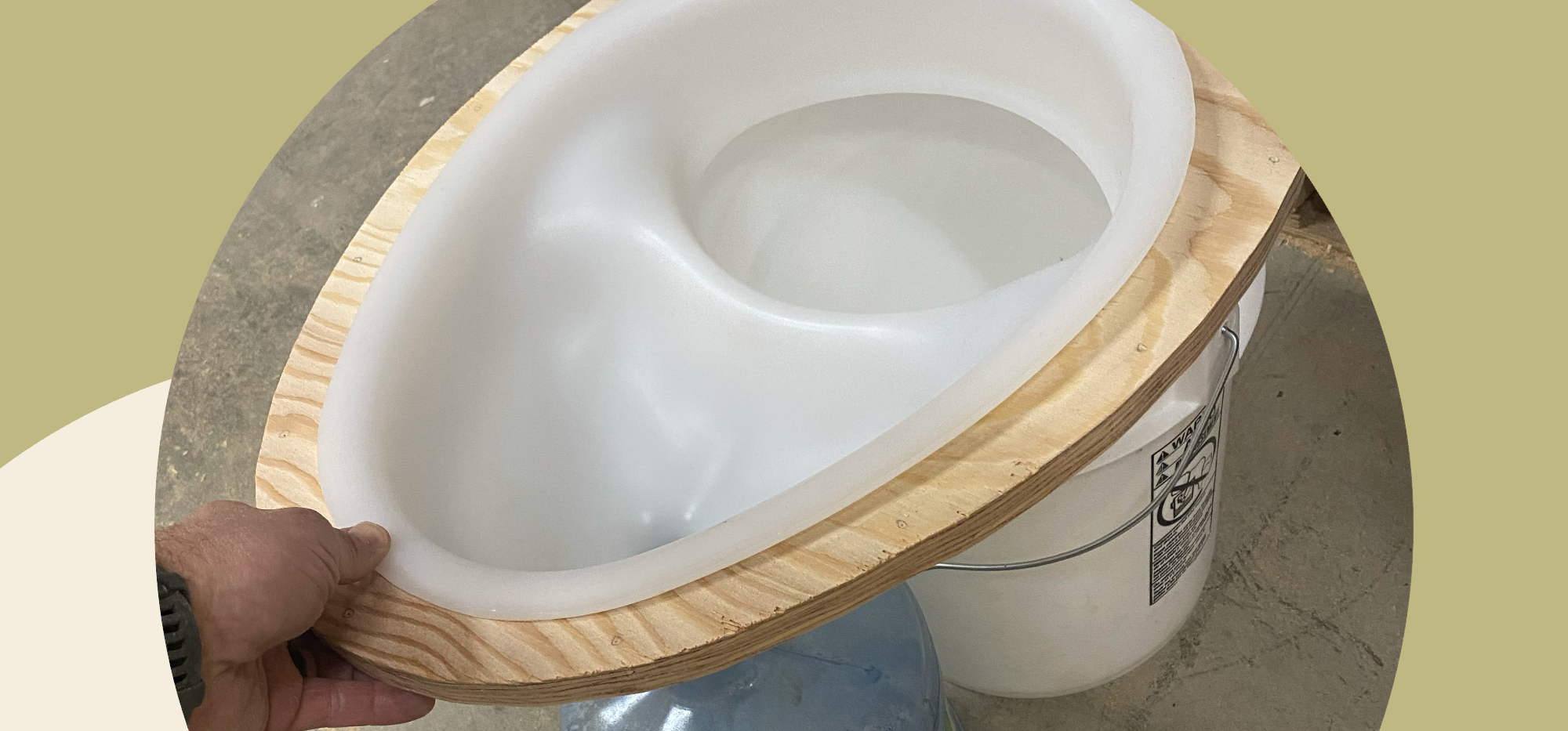Your cart is currently empty!

Building a Better Composting Toilet
A message from Nick, founder and chief visionary of Throne Composting Toilets

Composting toilets are a popular choice for folks living tiny for many reasons, but they don’t come without their challenges. It seems almost everyone I know who lives in a Tiny House, Skoolie, RV, or Van has a composting toilet and somehow our conversations always come around to “let me tell you about this disgusting thing that happened with my composting toilet!” Yeah, it’s human nature to talk about… human nature. But why do there have to be so many horror stories? At their root, composting toilets are very simple and shouldn’t cause so much misery.
I chose a composting toilet for my Airstream, then my 5th Wheel, and finally for my Tiny House for a few key reasons.
First, the freedom. A composting toilet doesn’t limit you to nasty dump stations, which might not even be open when you get there. Add a fee on top of that and things get annoying real quick.
Second, conserving resources. For nomadic folks, that means less water consumption, which equals longer stretches of boondocking. Now that I’m living stationary, it means that I can actually compost the contents, closing the nutrient cycle and delivering those nutrients back to the soil.
And third, and probably most important: simplicity.
When a composting toilet is done right, there isn’t much to pooping in a bucket.
Or there shouldn’t be. DIY composting toilets keep things simple and easy but many modern “plug-and-play” models have complicated handles and latches and crevices that can never be cleaned and parts that are hard to replace. This brings me to the woes of owning a composting toilet.
If you’ve ever owned a composting toilet or talked to someone who does, you know how hard – or pretty much impossible – it is to properly clean them. It seems like while regular toilets are relatively easy to keep clean, composting toilet manufacturers didn’t put much thought into this topic. There are crevices, seams, and inaccessible areas that come in contact with the organic matter. Nobody wants to invite guests to this, let alone use it on a daily basis. Add to that icky overflowing liquid jug emergencies and liquids getting into the solids bin, and you have one very expensive and nasty piece of equipment.

When building my Airstream, I just didn’t see why I needed to spend $1,000, so I set about building my own, much cheaper composting toilet. All components except for the liquids diverter are readily available at any hardware store for about $100-$200 total. A homemade composting toilet also allowed me to build a smaller layout and design it to fit the aesthetics of my bathroom.
Moving from the Airstream to our 5th Wheel and now to our Tiny House gave me the chance to evaluate my design, see which parts of my design work well, and keep on improving and tweaking the parts that I didn’t like. Now, seven years after starting out with our first composting toilet, I perfected the design – and I want to share it!
In addition to my own R&D, I’ve been working with our team of tiny living and nomadic folks. Every single one of the has been living with composting toilets – from different off-the shelf products to simple buckets, there’s a lot of experience going around.
We compared our diverters, measured liquids and solids openings, funnel depth, and “jewel clearance”. We’ve talked about the different experiences for men, women, and kids and what could be improved. These folks were not shy about telling me what they hated about the toilets they had owned as well as what features they loved and wouldn’t want to be without.

All tiny home and off-grid decisions are unique, and often the best choice is the one you can make or at least customize yourself. I know I’m not the only one who is looking for a composting toilet that is simple, clean, and doesn’t cost you $1,000. Building your own toilet is a great way to achieve just what you want for a fraction of the cost and it’s not difficult! With the Throne Diverter you can improve the performance of your toilet, build an appliance that fits your home, and save money while you’re at it. This is the diverter that I’ve been using and tweaking for the last 5 years. It’s super easy to clean, and is reliable in separating liquids and solids thanks to the deep liquids funnel and large solids opening.
I also created some simple and FREE DIY Toilet Build Plans, so you can get started on building your own composting toilet now. I’ve got a whole team of composting toilet users who are happy to help with any questions or troubleshooting. Trust me, we’ve been there.

– Nick, Founder of Throne Composting Toilets
Tags:

Leave a Reply